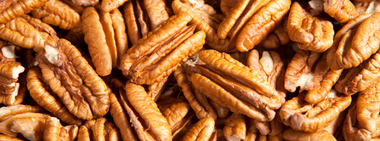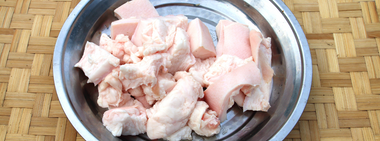Does the Mayo Clinic Diet work?

Disclaimer: I did my internal medicine residency and a cardiology fellowship at Mayo Clinic and I love my alma mater. However, I feel confident that I can give an unbiased review of the Mayo Clinic Diet, especially since the diet has been around since the 1940’s! There’s been some updates to it over time - the book is in its third edition - and it now boasts an online option with tracking, habit formation help and group support. The diet is also highly ranked by US News and World Report, so many people have heard of it but might not know what it’s all about.
The diet consists of three phases – “Lose it” (2 weeks) “Live it” (10+ weeks, during which you set yourself up for healthy eating habits for life), and finally the “Love it” phase (indefinite period of time which begins at the point you attain your target weight). The program emphasizes that weight loss is not the ultimate goal of the diet. Rather it’s to set you up to eat better and exercise more for the rest of your life. And who wouldn't get behind that!
My biggest beef is with the “Lose it” phase. The diet claims that you can lose 6-10 pounds during those first two weeks. This is the same type of promise made by a lot of quick fix weight loss plans. But losing just four pounds in that time frame requires a drop of about 1,000 calories per day. For many women, that would mean cutting your daily food intake in half -- or walking an extra 10 miles every day. To lose 8 pounds means eating almost nothing or spending all your time on walking trails. Which must mean the diet is either counting on enrolling people who are consuming a ton of calories at baseline or they’re betting on some of that weight drop coming from water loss (which is not permanent).
The first two weeks are pretty intense for other reasons, too. The diet asks you to initiate or break 15 different habits (!). The ten habits to add include things like: a healthy breakfast, consuming lots of fruits and vegetables, eating whole grains, making sure the fat you eat falls in the healthy category, exercising every day, setting daily goals, and keeping records of both food intake and exercise. The 5 habits the diet asks you to break include: stop eating while watching TV, limit sugar, limit eating out at restaurants, limit snacking and cut down on meat and dairy. Those are all laudable goals, but it’s a lot to change in only two weeks - on top of losing a lot of weight. Just reading the list of to-do’s feels exhausting to me.
After the first two weeks, I’m completely on board with the plan. The “Live it” phase has you losing a more reasonable one or two pounds per week while staying true to the lifestyle shifts you’ve made (and regularly recording your food intake and habits if you’re using their online app). This phase is also less restrictive in terms calorie counts and food choices. Plus, during this time you’re imprinting your new routines so they stay routine for the long haul (the “Love it” phase).
This diet plan is not necessarily cheap. Access to the app for one year costs almost $500 on the best available plan. The book, however, is only $30. Food is not included.
Most of the practices the diet recommends are solid: Eating lots of fruits and vegetables, whole grains, healthy fats and getting active are all great - as are eating less sugar, limiting meat and processed foods, and setting goals. And if you do this and stick with it, there is no question you will lose weight and keep it off. So overall I give the Mayo Diet two thumbs up.
But as I reflect upon the advice, it seems to me like a more complicated way to get to the simple instructions I give all my patients routinely: Eat food, not too much, mostly plants. And move your body every day.
If you do that, healthy weight will just naturally follow.
No books or apps or food logs required.

Tested & Proven Results.
- Cardiologist formulated
- Supported by over 500 publications
- Clinically-proven, in a double-blind randomized trial with Mayo Clinic and The University of Manitoba
80% of participants lowered their cholesterol in just 30 days. With just two servings per day, Step One Foods offers a proven-effective way to naturally lower LDL (bad) cholesterol.
Get heart health tips and articles like this, delivered right to your email.
New articles every week.
You may also like...

The Next Super Food: How Pecans Help Lower Cholesterol

You don’t need to avoid foods with cholesterol…except for these



